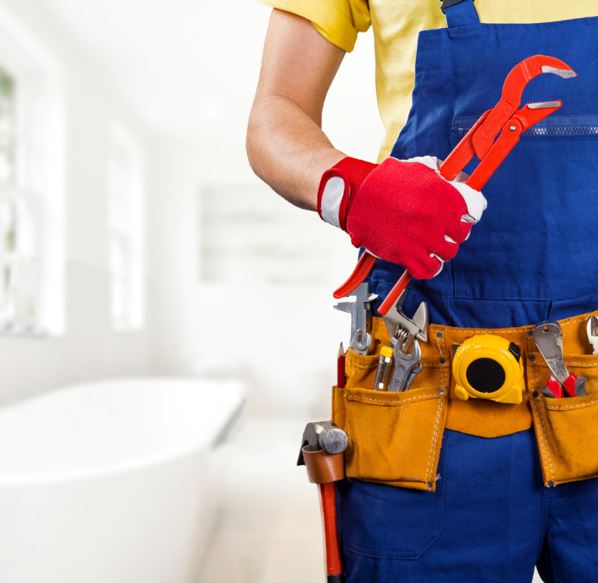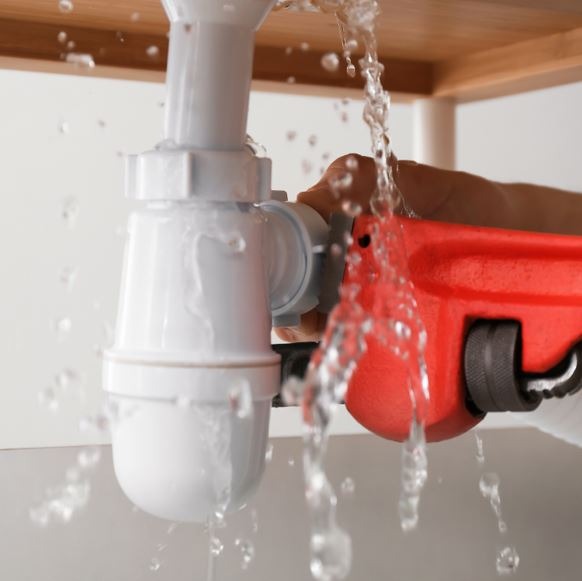As temperatures rise and summer arrives, homeowners eagerly embrace the season’s joys. However, the summer months also bring specific plumbing challenges that can disrupt your plans and drain your wallet. By staying informed about common summer plumbing issues and implementing proactive measures, you can guarantee a summer season free from plumbing worries and runs seamlessly.
This blog post will explore some of the most prevalent plumbing problems during the summer and provide practical tips on avoiding them. The summer months, from sprinkler system leaks to clogged drains and sewer line backups, pose unique. Challenges to your plumbing system. The combination of increased water usage, outdoor activities, and higher temperatures can put additional strain on pipes, drains, and fixtures.
However, with proper care and preventive measures, you can minimize the risk of plumbing emergencies and enjoy a relaxing summer. The following sections will delve into each common summer plumbing issue, discussing its causes and providing practical prevention strategies. By implementing these suggestions, you can save yourself from the inconvenience, expenses, and headaches of plumbing problems during summer. Explore these tips and ensure a trouble-free summer for your plumbing system.
1. Sprinkler System Leaks: One of the typical summer plumbing issues is sprinkler system leaks. Ensuring it functions efficiently is crucial as you rely on your sprinkler system to keep your lawn and garden lush. Leaks in the sprinkler system can not only cause wastewater but also lead to damage to your property. Regularly check for leaks by inspecting the sprinkler heads, valves, and pipes. Make sure all connections are tight and secure. If you notice any leaks or damaged components, promptly repair or replace them. Furthermore, you may want to contemplate the installation of a rain sensor as a means to avoid unnecessary watering when rainy days occur.
2. Clogged Drains from Summer Activities: Summer brings a host of outdoor activities, including barbecues, pool parties, and gardening. However, these activities can also contribute to clogged drains. Grease, food particles, and debris from cooking can clog kitchen sink drains, while hair, sunscreen, and other substances can block bathroom drains. It is essential to exercise caution regarding what is disposed of down the drain to prevent clogs. Properly dispose of cooking grease and utilize drain strainers to capture food particles. Encourage your guests to use a designated trash bin for disposing of waste. Additionally, clean shower drains regularly to prevent hair buildup. In the event of a clog, it is recommended to employ a plunger or a drain snake to resolve the issue while refraining from using chemical drain cleaners, as they have the potential to cause damage to your pipes.
3. Sewer Line Backups: Sewer line backups can be a significant headache during summer. Heavy rains and increased water usage can strain the sewer system, leading to blockages and backups. To minimize sewer line problems, it is advisable to refrain from flushing items such as wipes, feminine hygiene products, or paper towels down the toilet. These non-flushable items can accumulate and cause blockages in the sewer line. You may want to contemplate the installation of drain screens as a means to capture debris and hinder its entry into the sewer system. Additionally, it is beneficial to establish a routine for sewer line inspections to identify any potential issues in their early stages.
4. Overworked Air Conditioning Condensate Lines: As the temperature soars, your air conditioning system works harder to keep your home cool. The condensate line, responsible for draining excess moisture produced by the air conditioner, can become overwhelmed and clogged. As a result, this can result in leaks and possible damage to your property caused by water. Inspect the condensate line for any signs of blockage or leaks. Regularly clean and flush the cord to prevent buildup. Ensure that the condensate pipe is adequately insulated to avoid condensation issues.
5. The summer season typically entails heightened water consumption: various activities such as irrigating plants, filling swimming pools, and washing vehicles. This can strain your plumbing system, leading to low water pressure, leaks, and even burst pipes. To avoid problems, be mindful of your water usage. Consider using a timer for your sprinkler system to prevent excessive watering. Repair any leaky faucets or toilets promptly. To optimize water usage, consider implementing strategies such as efficiently collecting rainwater outdoors or utilizing a pool cover to minimize evaporation. These small steps can go a long way in conserving water and preserving the health of your plumbing system.
6. Septic System Overloading: Summer activities often involve hosting gatherings and accommodating more guests, which can strain your septic system. Increased water usage from showers, toilets, and laundry and a higher volume of waste can overload the septic system and lead to backups or even system failure. To avoid this, be mindful of your water usage and spread-out activities that require a large amount of water. Consider staggering showers and laundry loads throughout the day.
Additionally, it is essential to communicate to your guests the importance of refraining from flushing non-biodegradable items or excessive amounts of toilet paper. Regular maintenance tasks such as pumping and inspections are crucial to maintain the proper functioning of your septic tank system.
7. Outdoor Faucet and Hose Bib Issues: During summer activities such as watering plants, washing cars, filling pools, outdoor faucets and hose bibs are often used. However, knowing that these fixtures can encounter problems such as leaks, worn-out washers, or broken handles is essential. Regularly inspect your outdoor faucets for any indications of leaks or damage to ensure their proper functioning. Replace worn-out washers and repair any visible cracks or breaks. It is crucial to remember the significance of disconnecting hoses when not in use, particularly during colder months, to safeguard against freezing temperatures and the potential damage they can cause to pipes. Consider installing frost-proof hose bibs to protect against cool temperatures. Proper maintenance and care of outdoor faucets and hose bibs will ensure longevity and prevent water waste.
Conclusion
Awareness of common summer plumbing issues, and taking preventive measures can save you from the stress, inconvenience, and expenses of plumbing problems. Consistently maintaining your plumbing system, exercising caution in its usage, and promptly addressing repairs are essential factors in preserving the optimal condition of your plumbing system throughout the summer season. Remember to regularly inspect your sprinkler system for leaks and damage, ensuring all connections are secure. Avoid clogged drains by disposing of waste properly and using drain strainers. Exercise mindfulness when utilizing your sewer line, refraining from flushing non-biodegradable items or excessive amounts of toilet paper.
Additionally, it is essential to regularly maintain and clean your air conditioning condensate lines to prevent any potential water leaks or damage. Practice water conservation to alleviate strain on your plumbing system and reduce water waste. Furthermore, keeping a close eye on your septic system by appropriately distributing water usage and arranging routine maintenance sessions is advisable. Care for your outdoor faucets and hose bibs by checking for leaks, replacing worn-out washers, and disconnecting hoses when not in use.
By incorporating these suggestions into your routine, you can guarantee a summer season that is both stress-free and enjoyable, free from any plumbing-related disruptions. Take the necessary precautions and enjoy the sunshine knowing your plumbing system is well-maintained and protected.

